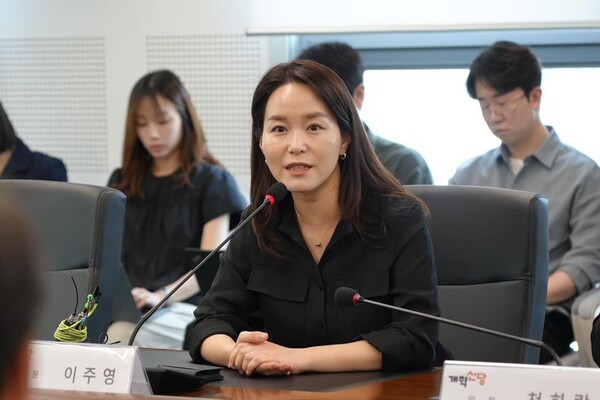The New Reform Party (NRP) has pledged to scrap the essential medical care package promoted by the Yoon Suk Yeol administration.
The splinter opposition party promised to scrap the reform plan to restructure tertiary general hospitals, which would reduce the role of trainee doctors and educational opportunities. It also vowed to develop a new healthcare reform plan after sufficient discussion based on trust between the government and the medical community.

On Thursday, the party’s Policy Committee announced its core healthcare pledge. This was the second medical pledge after calling for a national full-responsibility system for wide-area trauma and emergency medical centers.
The committee said that core medical care means the intersection of “indispensable” medical areas that are directly related to life, breaking down the division of essential and non-essential medical areas into medical departments.
“We declare the total abolition of the existing Yoon administration's essential healthcare package in principle,” the policy committee said. “We will develop a new healthcare reform plan through sufficient inter-parliamentary discussion. It aims to restore inter-parliamentary trust that was damaged by the existing essential healthcare package and establish a stable mid- to long-term plan for healthcare policy.”
To restore trust between policymakers and doctors, the party said it would reorganize the composition and operation of the Healthcare Policy Review Committee and Health Insurance Policy Review Committee.
To develop a stable mid- to long-term roadmap for healthcare policy that is free from political influence, the party plans to establish a permanent council centered on medical experts in the field and mandate them to develop a five-year plan for healthcare development.
NRP Chairman Lee Jun-seok is the party’s standard-bearer in the presidential election, with approval ratings of just over 10 percent.
The party cited “state-led unrealistic fee setting” and “medical workers’ burnout due to the avoidance of core medical subjects” as the reasons for the collapse of core healthcare and vowed to adjust fees for critical and high-risk care to match OECD average levels and account for inflation.
The policy committee added that to create a sustainable financial foundation for health insurance, it plans to reorganize the linkage between health insurance and long-term care insurance.
In addition, to prevent the collapse of core and regional medical care, the party will expand the scope of criminal liability exemption for bad outcomes in core medical areas and provide compensation insurance for high-risk medical practitioners to address the trend of medical professionals avoiding core specialties.
The plan also includes measures to strengthen the core medical care system led by the government.
It will, for instance, designate regional cancer centers for each major region, reform the structure of public hospitals, and establish a system for training and managing specialists in core medical subjects by providing innovative incentives. The role of public hospitals will be clarified, and the remote consultation system between medical personnel and medical institutions will be upgraded in the case of severe outbreaks.
The system for training medical personnel will also be specialized for future medical care. It will strengthen the quality management of medical education by ensuring the independence of the Korean Institute of Medical Education and Evaluation. It will also improve the structure of the Training Environment Evaluation Committee and make it an independent organization so that it can objectively and professionally evaluate the training environment of specialties.
It also plans to completely abolish the reform plan for restructuring tertiary general hospitals, which would reduce the role of specialists and educational opportunities.
The party will also promote policies to protect nursing personnel and improve the quality of care. It will limit the number of simultaneous nursing patients per nurse and gradually increase the number of statutory nursing staff per bed. It will differentiate the allowance and payment for severe nursing care and conduct a comprehensive survey to identify unpaid nursing tasks and incorporate them into future compensation policies.
“The overall healthcare system, including core medical care, regional medical care, and medical education, is in danger of collapse due to the collapse of trust among medical institutions,” said Rep. Lee Ju-young, NRP’s chief policymaker. “Our party, if given the chance, will step in to protect and strengthen core medical care and establish a stable and sustainable mid- to long-term healthcare policy.”
With just 10 days before the presidential election, the New Reform Party is busy increasing its contact with vocational organizations. Rep. Lee will visit the Korean Medical Association on Friday.
Related articles
- Neighborhood clinics must be health policy partners, says physicians' group
- Presidential candidates: Who will rewrite Korea's healthcare playbook?
- Ahead of presidential election, calls for shorter service for public health doctors gain momentum
- Surge in military enlisting among medical students sparks fears of regional healthcare collapse
- Civil group criticizes NRP candidate Lee for 'inciting hatred' with healthcare pledge

